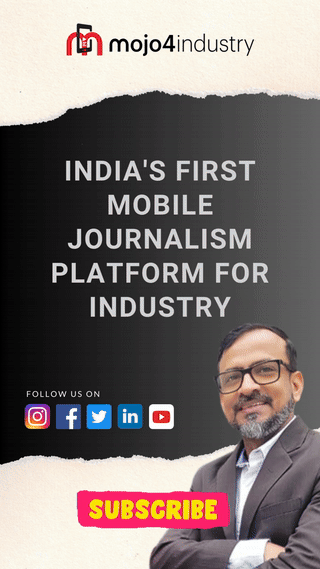Bergen Group Reveals Sustainable Energy Roadmap | The Smarter E India 2024
ARE YOU INTERESTED TO KNOW?
1. India has initiated an anti-dumping probe into imports of certain solar glass from China and Vietnam. What are its impact on the Indian solar industry?
2. How to safeguard the interests of domestic solar manufacturers?
3. How to make PLI scheme for solar industry more effective?
4. What are the challenges & opportunities in rooftop solar and green hydrogen sector?
5. Will PM Surya Ghar Muft Bijli Yojana 2024 accelerate solar adoption at the grassroots level?
In this video, WATCH the industry veterans Rajinder Kumar Kaura, CMD, Bergen Group, and Dr. DN Singh, CEO, Bergen Solar Power & Energy, share their expert opinions on the above important topics.
They also talk about Bergen’s participation at The Smarter E India 2024 in this interaction with mojo4industry.
How will the Indian solar industry be affected by the government’s anti-dumping investigation into solar glass imports from China and Vietnam?
Rajinder Kumar Kaura: China has been exploiting India’s inadequate supply chain and lack of solar cell and module manufacturing, leading to price disparities and economic challenges for India. To address this, the government should permit the establishment of solar glass manufacturing facilities in the country. Solar glass, essential for solar panels, is poised to see increased demand with the adoption of bi-directional modules. This necessitates expanding glass production capacity.
Additionally, initiatives such as the Prime Minister’s announcement of the Muft Bijli Yojana for rooftop solar will further boost module manufacturing. It’s crucial to ensure that all components of the solar supply chain, including glass, aluminum, cells, modules, junction boxes, wires, and chemicals, are domestically produced to support the ‘Make in India’ initiative.
How can we protect domestic solar manufacturers’ interests while promoting sustainable sector growth?
Rajinder Kumar Kaura: The government should prioritize investment in poly-silicon manufacturing to support domestic solar production. Options include government-led poly-silicon manufacturing or providing a minimum capex of 50% to other players in the industry. Additionally, it’s crucial to revise the Production Linked Incentive (PLI) scheme to ensure that poly-silicon and modules are appropriately correlated in the incentive measurement criteria.
How effective has the PLI scheme been in promoting domestic manufacturing and fostering innovation in the solar sector?
Dr. DN Singh: In a country like ours, where our solar equipment production scale lags behind China’s, government policy intervention is crucial. The introduction of the PLI scheme has been commendable as it encourages investors to participate in the entire photovoltaic (PV) sector, from poly-silicon to modules. However, effective policy implementation is essential. Currently, restrictions on Chinese technicians’ travel pose challenges, despite much of the equipment being imported from China. Nonetheless, we’re adapting by training our own personnel and managing installations independently. The PLI scheme, though beneficial, requires expedited and better-coordinated execution.
Furthermore, the Prime Minister’s Muft Bijli Yojana has significantly boosted the PV market, creating a potential demand for over 30 gigawatts of solar installations. Encouraging investors in this sector is vital for its success. This initiative not only benefits individuals gaining access to free electricity but also stimulates market growth, establishing a supportive ecosystem. This growth will facilitate quicker production scaling and technological innovation, closing the gap with China’s technological advancements.
How do you see rooftop solar and hydrogen technologies integrating into India’s energy landscape?
Dr. DN Singh: Solar power generation is a well-established technology, but now we are looking to introduce hydrogen as an energy source. Hydrogen offers two key advantages. Firstly, it can serve as an efficient energy storage solution, replacing traditional batteries. By using solar-generated electricity to split water and produce hydrogen, we can store energy for later use. Secondly, hydrogen can power fuel cells to generate electricity, eliminating the need for lithium batteries in electric vehicles (EVs). Instead of relying on lithium batteries, we can produce hydrogen using solar energy and use it to power EVs through fuel cells. This approach helps in fully decarbonizing the atmosphere, paving the way for a sustainable future.
What challenges and opportunities do you foresee in scaling up rooftop solar and hydrogen adoption across various sectors?
Rajinder Kumar Kaura: Countries like Japan have been leading the way in hydrogen technology since 2014, even powering cars with hydrogen. India has also introduced a hydrogen R&D policy, initially focusing on demonstration projects with a budget of 1,000 Cr. Rather than reinventing the wheel, it’s wise for India to emulate Japan’s successful implementation of hydrogen policies to avoid falling behind in this crucial technology.
The primary challenge lies in knowledge dissemination. Currently, neither solar nor hydrogen technologies are part of the curriculum in Indian universities, both at undergraduate and postgraduate levels. Therefore, building a skilled workforce is paramount, and the government must prioritize education and training in these areas.
Another challenge is updating the knowledge of employees in distribution companies (discoms), many of whom are from older generations and lack familiarity with solar and hydrogen technologies. Educating them on these advancements is essential for efficient implementation.
Furthermore, there’s a need for a mass education movement to inform Indian citizens on utilizing solar and hydrogen technologies cost-effectively. Overcoming these challenges requires significant efforts from academia and industry to impart knowledge and skills to the next generation.
Could you please share with us the key highlights of Bergen Group’s participation at this year’s event?
Dr. DN Singh: Our aim is to offer a comprehensive solution covering the entire process from poly-silicon to module production. We provide European solutions for poly-silicon and wafering, and Chinese solutions for cell and module lines. This ensures that we cater to all essential stages of solar panel manufacturing. Additionally, we assure investors that our knowledgeable team can support them from concept to completion, offering a seamless partnership for their projects.
Rajinder Kumar Kaura: My focus is on empowering individuals with the necessary skills. Skilled personnel are essential for efficiently adopting new technologies, maximizing their benefits, and reducing costs. Well-trained individuals can handle tasks effectively, leading to fewer breakdowns. With the emergence of new technologies like hydrogen, solar, and electric vehicles (EVs), there’s a growing need to train mechanics who traditionally worked on combustion engines. As EVs become more prevalent, it’s crucial to provide training for these professionals to adapt to the changing automotive landscape.






